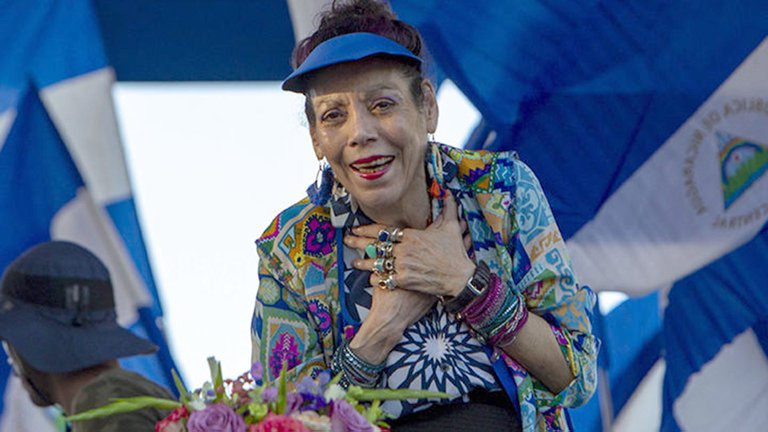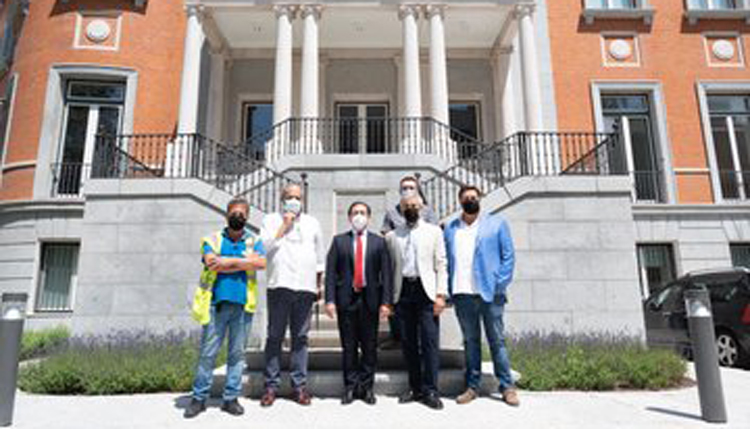The Diplomat
The European Union yesterday imposed sanctions on eight more people it considers to be involved in the repression in Nicaragua, including the country’s vice-president, Rosario Murillo, who is also the wife of the president, Daniel Ortega.
The EU Council, which brings together the member states, indicated in a statement that the restrictive measures are adopted against these eight individuals “as being responsible for serious violations of human rights or actions undermining democracy and the rule of law in Nicaragua“, reports Europa Press.
The Council stressed that “the measures are targeted against individuals and are designed so as not to harm the Nicaraguan population or the Nicaraguan economy”.
Among those sanctioned is also Juan Carlos Ortega Murillo, son of Daniel Ortega and Rosario Murillo, who is the head of the Sandinista 4 de Mayo movement and runs Canal 8, one of the country’s main television channels.
The sanctions also affect Ortega’s economic adviser, Bayardo Arce Castaño; the president of the National Assembly, Gustavo Eduardo Porras Cortés; the president of the Supreme Court, Alba Luz Ramos Vanega; the attorney general, Ana Julia Guido Ochoa; and two police officers.
With this measure, the EU has already sanctioned fourteen persons in Nicaragua, whose assets in EU territory will be frozen. In addition, EU citizens and companies are subject to a ban on making funds available to them. None of them will be able to travel to the Union or transit EU territory.
In adopting the measure, the Council stated that the political situation in Nicaragua “has further deteriorated in recent months” and added that “the political use of the judicial system, the exclusion of candidates from the elections and the arbitrary disqualification of opposition parties are contrary to basic democratic principles and constitute a serious violation of the rights of the Nicaraguan people”.
“These actions further undermine the credibility of the electoral process, already hampered by an electoral reform that did not comply with the recommendations of the electoral observation missions of the Organisation of American States and the EU,” it said. The EU club recalled that it has “repeatedly” urged the Nicaraguan government to comply with “its own commitments, the Nicaraguan Constitution and international human rights laws and standards”.
“The EU has also repeatedly called for an effective dialogue with the opposition on the adoption of electoral reforms as an essential step to restore confidence in public institutions, and for the return of international human rights bodies to Nicaragua,” it added. According to the EU, the sanctions announced today demonstrate that the EU “remains determined to use all its instruments to support a democratic, peaceful and negotiated solution to the political crisis in Nicaragua”.
“Regrettably, the arrest of a seventh potential presidential candidate last weekend illustrates the scale of repression in Nicaragua and paints a worrying picture for the upcoming elections,” the Council said. It reiterated its condemnation of “the systematic repression by the Nicaraguan authorities” and urged them to “repeal restrictive laws, including the law regulating foreign agents”.
It also called for the “immediate and unconditional” release of political prisoners, as well as full respect for human rights and the civil and political rights of all Nicaraguan citizens. The sanctions regime against Nicaragua was first adopted in October 2019, “after the Council repeatedly expressed its concern at the deteriorating political and social situation in Nicaragua and strongly condemned the repression since April 2018 against political opponents, protesters, independent media and civil society”. On 4 May 2020, the Council adopted the first restrictive measures against six individuals.







